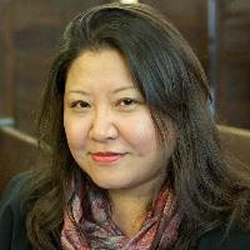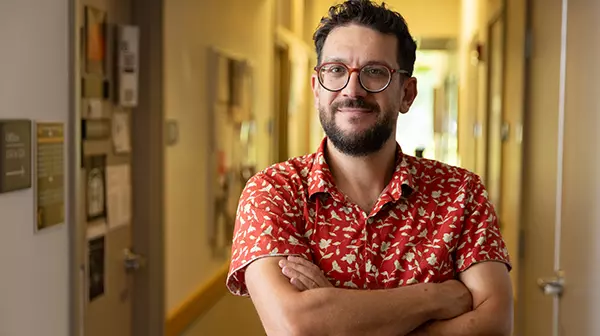2025 FYI Leadership
Hajung Lee
Associate Professor of Religion, Spirituality & Society, and Bioethics

Prof. Hajung Lee is an Associate Professor of Religion, Spirituality & Society, and Bioethics at the University of Puget Sound. She brings a unique interdisciplinary perspective, combining expertise in bioethics, public health, health law, biotechnology, and religion. Her research focuses on immigrant health, reproductive ethics, medical racism, health equity, and the intersection of religion and medical practices. Prof. Lee holds a PhD in Religion and Society (Social Ethics) from Boston University, where she also earned a Graduate Certificate in Teaching Writing. She has a Master of Bioethics from Harvard Medical School, a JD with a concentration in Health Law from Seattle University School of Law, a Master of Arts in Theology from Fuller Theological Seminary, and a Bachelor of Science in Biomedical Engineering with a minor in music from Duke University.
In Fall 2024, she served as a Visiting Associate Professor of Global Health and Social Medicine at Harvard Medical School and is currently an affiliate at the Center for Bioethics at Harvard Medical School. She has been recognized for her excellence in teaching, receiving the 2024 Thomas A. Davis Teaching Award from the University of Puget Sound and the Outstanding Teaching Award from Boston University.
She is excited to be part of the FYI program, engaging with first-year students as they begin their academic journey!
Faculty
Biology and the Environmental Studies and Sciences
Course: “Exploring Urban Biodiversity and Environmental Justice”
The value of urban spaces for biodiversity is frequently overlooked, yet these human-dominated landscapes can contribute significantly to regional biodiversity. However, given racist and exclusionary practices in urban planning and resource allocation, biodiversity is typically not distributed evenly across urban spaces. In this course, we will explore the concept of biodiversity, learn about local biodiversity in Tacoma and tools to help identify it, and investigate how historical redlining and exclusionary practices have implications for biodiversity and environmental justice today.
Religion, Spirituality, and Society
Course: “Religion in the Age of Climate Change”
This course analyzes the complex relationship between religion and climate change. Students will examine how religious traditions, beliefs, institutions and practices have shaped humanity’s relationship with the environment. They will explore theories of how religion led to environmental devastation and insights into how it might lead to ecological repair, asking questions such as: do particular kinds of religion lend themselves to environmentalism? Can religion be blamed for environmental collapse? How do views of the afterlife inform our relationship to the earth? The course also considers religious activism and spiritual responses aimed at environmental conservation and sustainability.
Mathematics and Computer Science
Course: “Solving problems through the application of Graph Theory”
In this course, students explore an area of mathematics known as Graph Theory. They use these new skills to help solve common problems (e.g., routing a postal carrier). After learning basic Graph Theory skills and practice their use in applied situations, students work on group projects to develop and present solutions to select problems.


